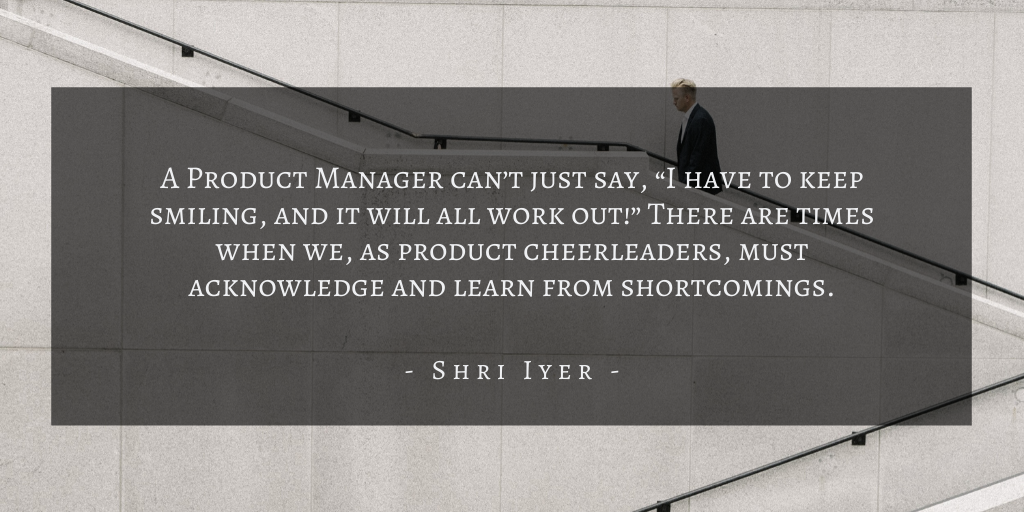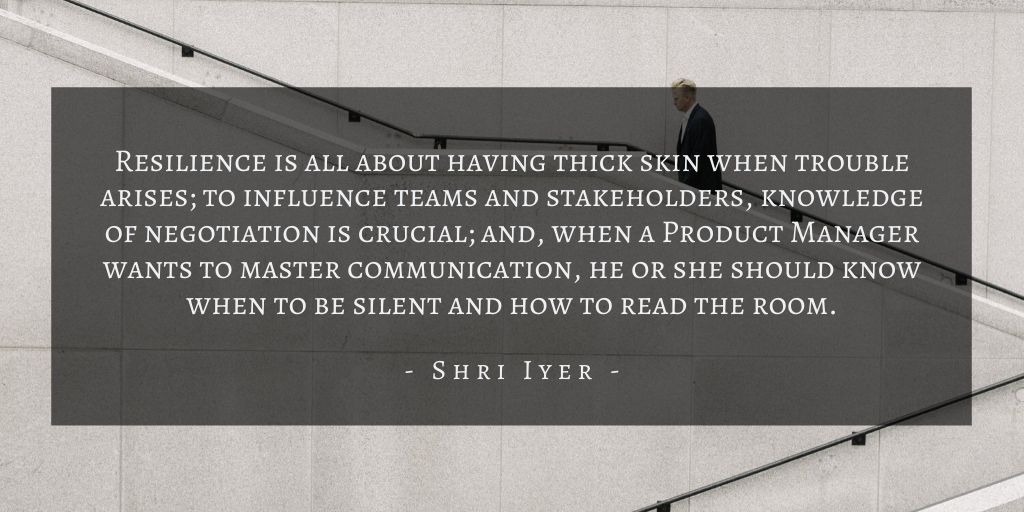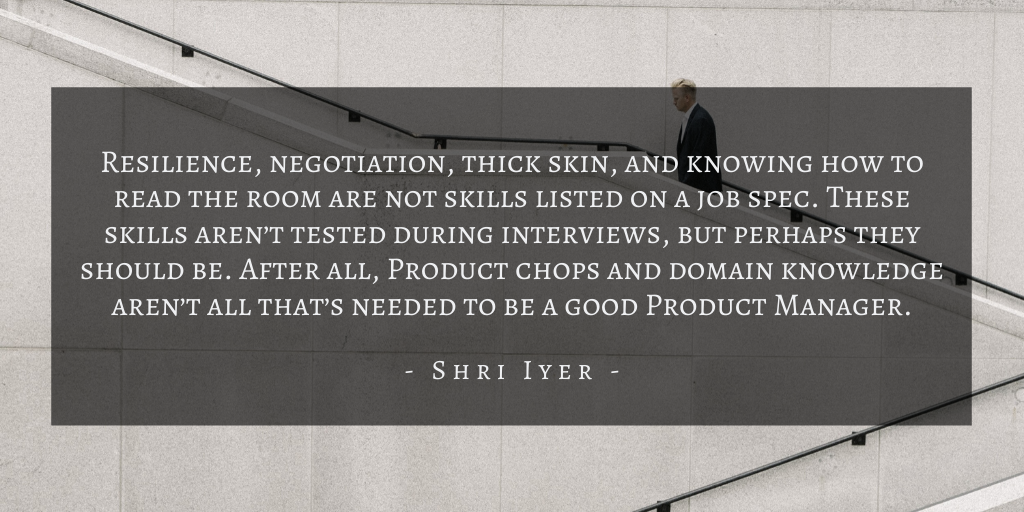What soft skills are essential for Product Managers? In some ways, traditional and widely-recognized skills of proper communication and relationship building are critical components of success as a Product Manager. However, “soft skills” can be too nebulous and narrow at the same time. Time and time again, we may reference some of these specific soft skills, but don’t dive deep enough into why they’re underrepresented, or why they matter in the first place! This blog serves as an exploration of some of those skills, focusing on the specific application of these skills.
Resilience
Resilience is the ability to bounce back from disappointment and hardship. In the world of product, it’s common to discuss the importance of positivity, but the balance of positivity in the face of negativity is often overlooked.

As much as Product Managers might love their jobs, the position is an exhausting one. Satisfying stakeholders, customers, and colleagues on a day-to-day basis is not always easy, especially when projects hit bottlenecks or similar complications. This is why resilience is so remarkable. A Product Manager can’t just say, “I have to keep smiling, and it will all work out!” There are times when we, as product cheerleaders, must acknowledge and learn from shortcomings.
Diwakar Kaushik is the Operating Partner at GoJek and a writer for The Product Design Blog. In the first part of his series on necessary Product Manager skills, he highlights the importance of balancing accountability and fairness.
“Own the results, fix what’s broken, learn from the failures,” Diwakar writes. “But don’t keep blaming yourself for things that don’t go the right way.”
Discussions of positive attitudes in Product Management must not exclude the crucial role of resilience. After all, Product Managers must learn from past actions to move forward and grow—and this includes admitting to missteps.
Silence and Reading the Room
Communication is a two-way street, but that street becomes pretty crowded when more drivers are on the road. Product Managers should listen to their colleagues and clients and take another step to apply context to what they are hearing.

Knowing what to say when speaking is one thing; knowing when to speak, as well as when to stay silent, is an entirely different skill. ProductPlan Founder and Chief Strategist Jim Semick describes silence as an under-appreciated skill in his article for Product Managers. He builds on it by chatting with a fellow Product Manager, Jay. In the article, Jay describes how he “values the mental and emotional awareness and dexterity to modify one’s approach based on the specific team you’re working with.”
Instructions or ideas are going to be interpreted differently by different groups of people, even if the same verbiage is used. Thus, Product Managers must understand the importance of listening to their peers and gauging the most effective communication strategies.
Influence
Although “manager” is half of the Product Manager title, that leadership moniker does not create authority. Saying this might seem like a simplification of the nuanced product management responsibility. However, Product Managers are managers of just that—the product. Any influence over individual departments or teams falls on their respective managers.
Because Product Managers do not necessarily have authority over other teams, they must focus on building influence. To push features, drive integration, and pool resources, as Notejoy Founder and CEO Sachin Rekhi explains, Product Managers must practice leadership without authority. How is this accomplished? With relationship-building, a solid vision, and plenty of empathy for people and problems.
Communication
Thick skin, negotiation, and active listening—these are the three main ingredients of successful communication. Too often, “communication” is used as a buzzword with little substance. Successful communication, then, becomes a nebulous and unattainable skill. Bringing specificity into the definition of communication is vital.

These three communication skills overlap with the aforementioned underrated skills. Resilience is all about having thick skin when trouble arises; to influence teams and stakeholders, knowledge of negotiation is crucial; and, when a Product Manager wants to master communication, he or she should know when to be silent and how to read the room.
According to Userlane Marketing and Content Specialist Tracey Ruff, “A lack of communication, or the wrong kind of communication, can really make or break a relationship.” This circumstance is similar to that of resilience and positivity; we often focus on everything going according to plan. But what about when things go wrong? How can we problem-solve issues if they aren’t inherently related to the product at hand?

Conclusion
Product is an area with no direct authority. When a Product Manager is faced with conflict, turmoil, ambiguity, and any other trouble, these underrated skills are handy. Resilience, negotiation, thick skin, and knowing how to read the room are not skills listed on a job spec. These skills aren’t tested during interviews, but perhaps they should be. After all, Product chops and domain knowledge aren’t all that’s needed to be a good Product Manager. Maybe in a perfect world, understanding the domain would be enough. But, when variables clash with goals, these underrated skills are the ideal remedy.

